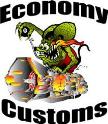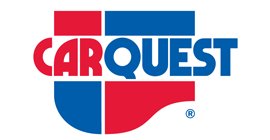Looking Down the Road - Headlamps
Posted September 28, 2011 12:00 PMIf you've ever been driving around Bristol and had a headlamp go out, you've probably just wanted to replace the bad bulb. If your car uses halogen headlamps, they dim over time. So if you just put in one, they won't have the same brightness, which can be distracting and will affect your field of vision.
To have your headlights inspected, visit us at Economy Transmission and Auto Repair. We're at 201 Terryville Road in Bristol, Connecticut 06010. Or give us a call at (860) 589-1255.
Experts at Economy Transmission and Auto Repair recommend replacing your halogen headlamps every year. It's easy to remember if you do it when Daylight Saving Time changes in the fall. That way you'll have bright headlamps for those long Connecticut winter nights.
There are other types of headlamps in addition to halogen. There are the old standard bulbs that have been around for decades. These are OK, but you can usually upgrade to halogen. They cost a little more but you can't believe the difference. If you do a lot of night driving you might want to use a premium halogen bulb that filters out the yellow hues and gives a very white light that's a lot like daylight.
You may have noticed those bluish headlights on luxury cars. They are high intensity discharge or, HID lamps. They really light up the road. You can upgrade to HID on some vehicles. These cost quite a bit, but they'll last for the life of your car. If you want your friends to think you have HIDs, you can get halogens with a bluish tint - no one needs to know.
Seriously, though, night driving is all about reaction time – time to stop – time to get out of the way. You can't react to what you can't see. You need headlamps that'll give you a good view down the road and good peripheral vision as well. Your headlights need to be aimed correctly so you can see and to keep your lights from shining off into oncoming traffic.
You may have seen older vehicles with headlights that are awfully dim and maybe even yellow. That's because the plastic headlight lenses have gotten cloudy and yellowed with age. They can be replaced, but many Bristol service centers offer a service to restore the lens that's a lot cheaper.
You can't drive if you can't see. AAA reports that nine out of ten vehicles have dirty or yellowed headlamps. So run the window squeegee over your headlights when you gas up to clear the dirt and bugs. Get your lenses restored if they need it and don't forget to replace your standard or halogen bulbs every fall.
Economy Transmission and Auto Repair
201 Terryville Road
Bristol, Connecticut 06010
(860) 589-1255
Get Where You're Going with Power Steering Service in Bristol
Posted September 21, 2011 12:00 PM
Today we're going to talk about power steering service in Bristol. If you took an informal poll around Bristol you'd probably find that most vehicle owners have never heard of power steering service. That's not surprising. Even though power steering is standard on every vehicle, most people in Bristol aren't aware that it needs periodic service.
If you're younger than a certain age, you've probably never driven a vehicle without power steering. To get an idea of the difference; if you've ever cut a board with a hand saw, you know it's a lot of work. Using a power saw is easy-peasy by comparison.
Without power steering, your arms have to do all the work to steer the wheels, and that's hard, especially around downtown Bristol. That's why old cars had such big steering wheels: to get enough leverage to steer.
Most vehicles in Bristol have a hydraulic power steering system. The serpentine belt from the engine powers a pump. The pump pressurizes the power steering fluid. This actuates a hydraulic cylinder that provides power to help steer.
Some vehicles in Bristol use an electric pump to pressurize the fluid rather than a belt driven pump. We're also seeing vehicles with electric motors providing the power assist, not using power steering fluid at all. We'll see a lot more electric systems as more hybrids and electric vehicles hit the market.
At least for now, the vast majority of power steering systems use power steering fluid that needs to be serviced. The fluid needs to be changed for a couple of reasons. For one, it attracts moisture. Water has different hydraulic qualities than power steering fluid, and that makes a difference in steering performance. Water is also corrosive and can damage power steering components. The fluid also just gets dirty and needs to be changed. Removing the old fluid and flushing out the system gets rid of dirt and deposits. The clean, fresh fluid lubricates and provides better corrosion protection.
So ask your Bristol service advisor at Economy Transmission and Auto Repair or check your owner's manual to see when power steering service is recommended. It'll extend the life of your power steering components.
Economy Transmission and Auto Repair
201 Terryville Road
Bristol, Connecticut 06010
(860) 589-1255
Fuel Saving Tip: Tire Pressure Saves Fuel in Bristol
Posted September 13, 2011 12:00 PM
Underinflated tires waste gas for lots of folks in the Bristol area. Think how hard it is to walk in sand – you just have to work harder because of the resistance. When your tires don't have enough air in them, their rolling resistance is dramatically increased and it simply takes more gas to get from here to there.
Always check your tire pressure when you gas up at one of our local Bristol service stations. If they're low – even just a little bit – bring them up to proper pressure. There's a sticker on the inside of your driver's door that gives the manufacturer's recommended tire pressure.
And don't rely on your tire pressure monitoring system to alert you to when you need more air. The TPMS system is set to warn you when pressure drops 20 percent below recommendations. That's severely underinflated and you needed more air a long time ago. And if you have a slow leak – get it fixed right away at Economy Transmission and Auto Repair.
Get some air and save some gas.
Economy Transmission and Auto Repair
201 Terryville Road
Bristol, Connecticut 06010
(860) 589-1255
Saving Lives in Bristol with Tire Pressure
Posted September 6, 2011 12:00 PM
All new passenger vehicles on our Bristol, Connecticut, roads now have tire pressure monitoring systems – TPMS for short. They are designed to alert you if your tires are underinflated. Since they are fairly new, a lot of people have questions about them.
First off, the most important thing is that you still need to check your tire pressure every week – or at least every time you gas up. The TPMS system alert comes in when your tire is 20 percent below the factory recommendation. So if the recommended pressure is 34 pounds per square inch, the TPMS warning won't come on until the pressure is at 28 pounds. That's significantly underinflated, enough to raise safety concerns.
The worst is tire failure. A severely underinflated tire can overheat and fail. Also, handling degrades to the point that you may not be able to steer out of trouble. Also underinflated tires wear out faster and they waste fuel. So it's costly to not stay on top of proper inflation.
What's the practical value of the TPMS system? Well, it's twofold. First, it can alert you when your tire is losing pressure due to a puncture or a bent rim. That's an important warning that you might not have gotten until next time you gassed up.
The second is that we all occasionally forget to check our tire pressure. So it's a fail-safe system to let you know there's a problem brewing.
Other things can cause your TPMS system to go off. The system also monitors itself. The sensors that are mounted in the wheels have little batteries that send a signal to the monitor. The batteries go dead over time and the TPMS system will let you know. And the sensors could break. Also road salt from our Connecticut roads can ruin them.
There's also a hassle factor that your Bristol, Connecticut, tire center has to contend with. For example, when you have your tires rotated in Bristol, the TPMS system has to be re-calibrated so that it knows which tire is on which corner of the car. Same is true for when you have new tires or winter tires installed. Flat repairs, as well.
That takes extra time. And it requires the right equipment and training. Special – and expensive – tire change machines need to be used with some sensors. It's all complicated by the fact that there are a number of different TPMS systems in use so the tire professionals at Economy Transmission and Auto Repair need equipment and training for each kind. Tire centers have had to raise the price of some of these basic services to offset their increased costs.
Also if you add custom wheels on your vehicle, you need to put in new TPMS sensors if your originals won't work on the new rims. If you don't your TPMS light will be on constantly and you won't have the benefit of the warning system.
All in all, the mandated TPMS systems will save lives, so they're worth the added hassle and expense.
Economy Transmission and Auto Repair
201 Terryville Road
Bristol, Connecticut 06010
(860) 589-1255








